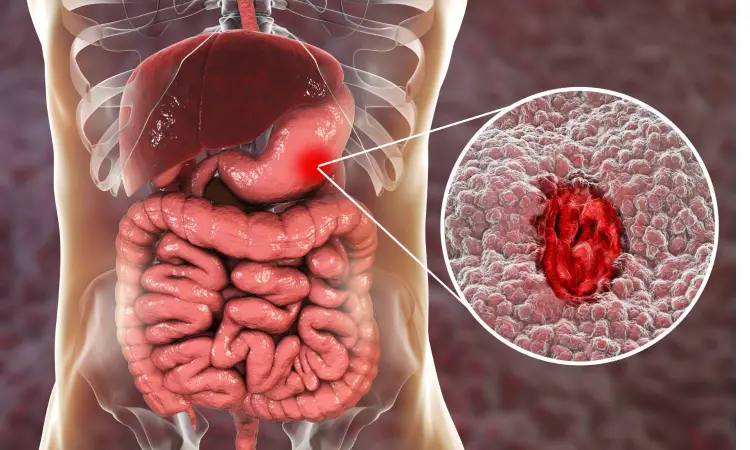- Home
- Medical news & Guidelines
- Anesthesiology
- Cardiology and CTVS
- Critical Care
- Dentistry
- Dermatology
- Diabetes and Endocrinology
- ENT
- Gastroenterology
- Medicine
- Nephrology
- Neurology
- Obstretics-Gynaecology
- Oncology
- Ophthalmology
- Orthopaedics
- Pediatrics-Neonatology
- Psychiatry
- Pulmonology
- Radiology
- Surgery
- Urology
- Laboratory Medicine
- Diet
- Nursing
- Paramedical
- Physiotherapy
- Health news
- Fact Check
- Bone Health Fact Check
- Brain Health Fact Check
- Cancer Related Fact Check
- Child Care Fact Check
- Dental and oral health fact check
- Diabetes and metabolic health fact check
- Diet and Nutrition Fact Check
- Eye and ENT Care Fact Check
- Fitness fact check
- Gut health fact check
- Heart health fact check
- Kidney health fact check
- Medical education fact check
- Men's health fact check
- Respiratory fact check
- Skin and hair care fact check
- Vaccine and Immunization fact check
- Women's health fact check
- AYUSH
- State News
- Andaman and Nicobar Islands
- Andhra Pradesh
- Arunachal Pradesh
- Assam
- Bihar
- Chandigarh
- Chattisgarh
- Dadra and Nagar Haveli
- Daman and Diu
- Delhi
- Goa
- Gujarat
- Haryana
- Himachal Pradesh
- Jammu & Kashmir
- Jharkhand
- Karnataka
- Kerala
- Ladakh
- Lakshadweep
- Madhya Pradesh
- Maharashtra
- Manipur
- Meghalaya
- Mizoram
- Nagaland
- Odisha
- Puducherry
- Punjab
- Rajasthan
- Sikkim
- Tamil Nadu
- Telangana
- Tripura
- Uttar Pradesh
- Uttrakhand
- West Bengal
- Medical Education
- Industry
Preemptive Genetic Testing Feasible for Reducing Chemotherapy Toxicity in GI Cancer, Finds Trial

USA: A prospective trial in gastrointestinal cancer patients found that preemptive DPYD/UGT1A1 genetic testing before chemotherapy was feasible, enabled timely results in over half of cases, and showed potential to lower treatment-related side effects and modifications.
The research, led by Dr. Sony Tuteja from the Perelman School of Medicine at the University of Pennsylvania and published in JCO Precision Oncology, explored whether screening for genetic variants prior to starting chemotherapy could guide drug dosing and improve patient safety. The focus was on two pharmacogenes—DPYD, which influences the breakdown of fluoropyrimidines, and UGT1A1, which affects the metabolism of irinotecan. Variants in these genes can increase the risk of severe toxicity from standard chemotherapy doses.
A total of 288 adults with gastrointestinal cancers were enrolled, and 225 received chemotherapy regimens qualifying for evaluation. All underwent genetic testing before initiating treatment, and when significant variants were identified, oncologists were advised to reduce the drug dose accordingly. The median turnaround time for test results was 10 days, and 57.4% of reports were available before the first treatment cycle. Among patients with actionable drug–gene interactions, nearly 70% had results in time to allow dose adjustments, and clinicians consistently followed the genotype-based recommendations.
Key findings:
- Severe treatment-related adverse events occurred in 38% of the tested group compared with 65% in the control group, though the difference was not statistically significant.
- Treatment modifications were significantly lower in the tested group at 38% compared with 76% in the control group.
- Treatment discontinuations decreased from 47% in the control group to 31% in the tested group.
- In patients carrying high-risk genetic variants, the incidence of severe toxicity dropped to rates similar to those seen in patients without such variants.
The trial also revealed practical challenges. In some cases, chemotherapy began before results were available, often because treatment needed to start urgently. The limited number of variant carriers reduced statistical power for some analyses, and differences in disease stage and performance status between groups may have influenced toxicity rates. The study did not track all adverse effects using formal grading criteria but instead recorded the most severe events, such as those requiring hospitalization or emergency care.
Despite these constraints, the findings support the value of incorporating DPYD/UGT1A1 testing into routine oncology practice for gastrointestinal cancers. By identifying patients at greater risk of drug-related toxicity before treatment starts, clinicians can tailor chemotherapy dosing to improve safety without sacrificing efficacy.
Dr. Tuteja and colleagues suggest that expanding access to genetic testing and ensuring results are available before treatment begins could further enhance outcomes, with future work aimed at streamlining testing processes and broadening adoption across cancer treatment centers.
Reference:
Sony Tuteja et al. Implementation of DPYD and UGT1A1 Testing in Patients With GI Cancer: A Prospective, Nonrandomized Clinical Trial. JCO Precis Oncol 9, e2500086(2025). DOI:10.1200/PO-25-00086
Dr Kamal Kant Kohli-MBBS, DTCD- a chest specialist with more than 30 years of practice and a flair for writing clinical articles, Dr Kamal Kant Kohli joined Medical Dialogues as a Chief Editor of Medical News. Besides writing articles, as an editor, he proofreads and verifies all the medical content published on Medical Dialogues including those coming from journals, studies,medical conferences,guidelines etc. Email: drkohli@medicaldialogues.in. Contact no. 011-43720751


